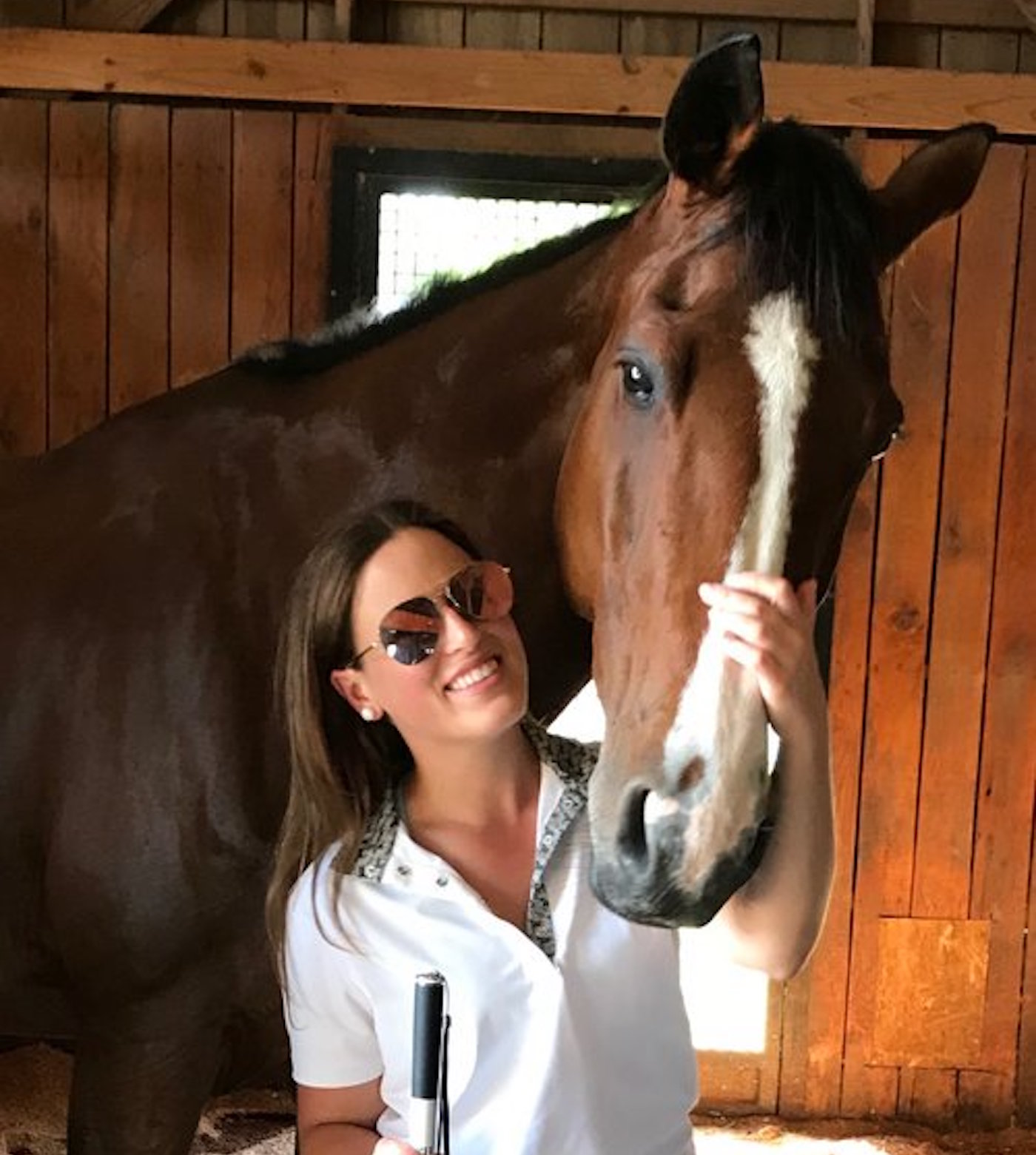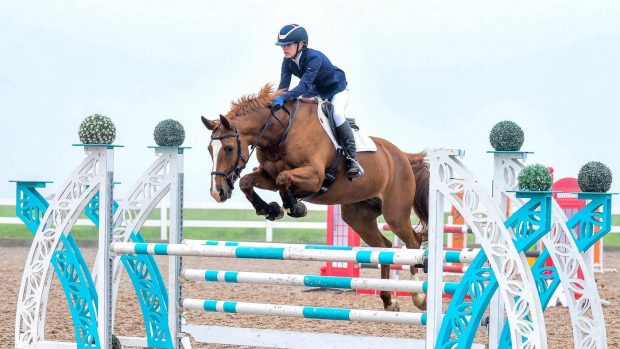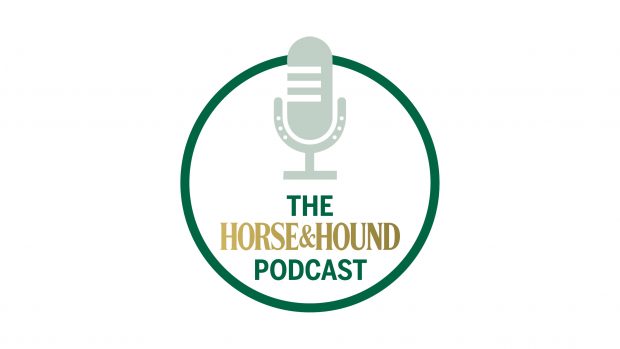A rider who first took the reins after she lost her sight hopes to campaign for para showjumping’s inclusion in the Paralympics – and inspire others to follow their dreams.
Wren Blae Zimmerman, from Kentucky, US, competes in 1m classes and hopes to move up to 1.10m this month, despite the fact she was registered blind some years ago.
The 30-year-old was diagnosed with a rare degenerative eye condition aged 17. Within a few years, she was legally blind. She told H&H her central sight is now blank, but she has some limited blurry peripheral vision.
“The disease gets significantly worse and then plateaus,” she said. “About two months ago, I had another decrease in vision, then it stopped. I don’t know when or if it will get worse again.”
Wren has always loved horses but when she was a child, her parents had neither the means nor the inclination to support lessons.
“They thought it was too dangerous, which it is!” she said. “But after college, I started riding. I went to a therapeutic centre and because my disability wasn’t as significant as some people there, they let me exercise their horses and I taught myself the basics.
“I always wanted to jump, but the instructor told me it really wasn’t possible.”
Wren said it was difficult to find a trainer but she eventually met a “gung-ho” woman willing to try.
“She put me on a school horse and about four weeks later, said: ‘We’re going to a show’,” she said. “I hadn’t even jumped a course by then; I was doing cross-rails, but she said ‘Let’s go, and see how it goes’ – and I got champion of my division.”
Wren was able to ride her trainer’s former grand prix showjumper, with whom she competed up to 1m, but two years ago, she decided to move from Oregon to Kentucky, the “epicentre of the US horse world”, to pursue her dream.
She said she was lucky enough to find another former grand prix horse, who she credits for teaching her a great deal. And she believes there is a debate over whether the fact she only learned to ride after she lost her sight was beneficial.

“I see these little girls riding and think if I’d had that background, experience and comfort level wiith horses, I’d be a better rider now; the more seat time, the better,” she said. “So I wish I’d had that growing up. But I’ve got feel for the horse solely as a visually impaired person; I don’t know anything else, so maybe it’s easier that I didn’t have to change my style of riding as I lost my vision.”
Wren prepares for her showjumping rounds in “meticulous fashion”.
She walks the arena with an aide before the jumps are put up, the perimeter, half- and quarter-lines, essentially dividing it into a grid and getting a sense of the space. She then goes back in once the fences are up so she knows where each is, while her aide tells her how far away each is and at what angle, giving her a “mental map” of the obstacles.
Her aide draws the course plan on a whiteboard or large piece of paper in bright colours, which she can see as blurs with her peripheral vision to get an idea of the lines she will ride. She then goes back to the arena with her trainer to walk the course, walking every stride. Once in the ring, her trainer can communicate through an earpiece if she is ever off her line.
Asked what it is she enjoys about showjumping, Wren said: “There are two aspects. On a personal level, there’s freedom in it. I can’t drive or do simple things like grocery shopping; you lose a lot of independence with your vision but when you ride, the horse lends you its eyes – it’s freedom from the disability you live with every day.”
Also, Wren says, she is very competitive.
“Through my competition, I do what people told me I couldn’t, and I’m proving them wrong,” she said. “But I also want to change the perception of what people who are blind or visually impaired are capable of.
“People have preconceived notions of what’s possible but when they see me jump, then find out I’m blind, they think ‘Now, wait a minute’. My goal is to create more opportunities for other disabled people to be able to ride, and to inspire them.”
Wren says she has heard from many people with disabilities who compete in dressage but want to jump, or who jump but want to move up a level, and she hopes to fight for them.
Continues below…

Rider overcomes ‘deep darkness’ of eating disorder to return to eventing on pony she sold 10 years ago
‘I’ve got lasting effects on my body from what I’ve done to it but the illness consumes you’

‘Never, ever give up’: rider overcomes cancer, broken back and missing finger
The rider lost her finger when her ring was caught in the rug strap of a horse who panicked and

Subscribe to Horse & Hound magazine today – and enjoy unlimited website access all year round
The US has para dressage as a sport but not para showjumping. “But just because it hasn’t been done, doesn’t mean it can’t be,” said Wren, who is working with the US and Canadian equestrian federations to try to promote para showjumping, as well as raising awareness of the sport as a whole.
This year, she plans to run demo classes at major shows – while also trying to raise the $20,000 (£15,450) she needs to keep the lease on her 17hh Cassini I horse Cassicasca for another year.
“I don’t always get it right but he makes up for what I lack,” she said.
Would you like to read Horse & Hound’s independent journalism without any adverts? Join Horse & Hound Plus today and you can read all articles on HorseandHound.co.uk completely ad-free




